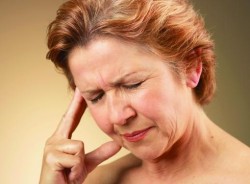Help! Depression Stole my Memory
Often, depression is presented as a persistent sadness. Maybe this is so people can relate to it because all people experience sadness from time to time. But, to think of depression merely as full-time sadness diminishes its role in people’s lives, the many types of depression, and many of symptoms associated with it.
Depression isn’t all about sadness. In fact, the National Institute of Mental Health (NIMH) identifies the following symptoms of depression:
- Persistent sad, anxious, or “empty” feelings
- Feelings of hopelessness or pessimism
- Feelings of guilt, worthlessness, or helplessness
- Irritability, restlessness
- Loss of interest in activities or hobbies once pleasurable, including sex
- Fatigue and decreased energy
- Difficulty concentrating, remembering details, and making decisions
- Insomnia, early-morning wakefulness, or excessive sleeping
- Overeating, or appetite loss
- Thoughts of suicide, suicide attempts
- Aches or pains, headaches, cramps, or digestive problems that do not ease even with treatment.
It is important to note that people who have depression and related illnesses don’t all experience the same symptoms. The NIMH asserts, “The severity, frequency, and duration of symptoms vary depending on the individual and his or her particular illness.” If you are struggling with depression, call Disorders.org at 888-647-0051 (Who Answers?) and get connected with a specialist who can help decrease the depressed thoughts that interrupt your ability to concentrate.
Among the many symptoms, people dealing with depression indicate that symptoms #7—difficulty concentrating, remembering details, and making decisions—prove to be some of the most troubling, as memory and concentration obstacles greatly interfere with relationship and career success.
Depressed Moods and Memory
Despite the frequency of cognitive problems among people battling depression, it wasn’t until recently that the phenomenon was observed in laboratory study. “Depressive Thoughts Limit Working Memory Capacity in Dysphoria” was published online in Cognition and Emotion, making researchers at the Center for BrainHealth at The University of Texas at Dallas the first to prove memory difficulties in people experiencing depressed moods.
According to the study’s findings, people with depressed moods demonstrate up to a 12 percent reduction in memory—compared to individuals without such a mood—when depressive thoughts are present. However, they perform equally to individuals without depressed mood when depressive thoughts are not present.
In some ways, this is hopeful news because although it does corroborate a loss of memory when experiencing a depressed mood, it also indicates that, in the absence of a depressive thought cycle, people with a depressed mood can have their memories function equal to those without depressed moods.
Interference Cycle
Depression works to interrupt chains of thought. Depressive reflection and damaging thought loops interfere with an individual’s thinking. An author of the above mentioned study, Dr. Bart Rypma, hypothesizes, “when individuals with depressed mood are exposed to stimuli, such as a meaningful song or a place that evokes sad feelings, the brain fixates on that and can’t focus on daily tasks such as a phone conversation or completing a grocery list.”
If you are plagued by depression, you are likely already aware of how easily your brain can fall victim to an obsessive, negative thought cycle. The same troubling thoughts can play over and over again in your mind with no foreseeable end. With all of that disruptive activity, it does become difficult to complete a train of thought or retrieve a memory. But, there are therapeutic approaches that can lessen the problem.
Treatments
The most common approaches to depression treatment are medication and psychotherapy.
The most common medications are anti-depressants, which work on brain chemicals called neurotransmitters, especially serotonin and norepinephrine. Anti-depressants can work to limit depressive thoughts and that can help people with depressed moods better concentrate.
Therapy comes in two main forms: cognitive-behavioral therapy (CBT) and interpersonal therapy (IPT). Both are effective in helping manage the symptoms of depression, although the more serious the depression, the more important it may be for patients to use psychotherapy in conjunction with medication.
Of the two types of therapy, CBT will be the more effective in improving concentration because it helps people experiencing depression to reorganize destructive thought patterns. This can be a useful approach to disrupting negative thought loops and when those are not allowed to play over and over, the brain can begin to focus with increased strength.
Depression can steal you memory, but you have the power to take it back. By connecting with qualified professionals, you can create a treatment plan that focuses on reducing depressive thoughts and increasing concentration and memory. If you are ready to get started, call Disorders.org at 888-647-0051 (Who Answers?) and speak to a specialist 24 hours a day, 7 days a week.






